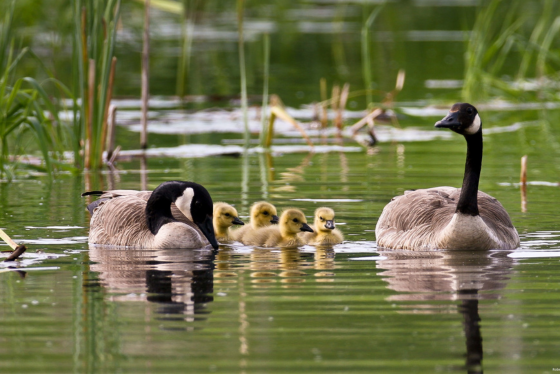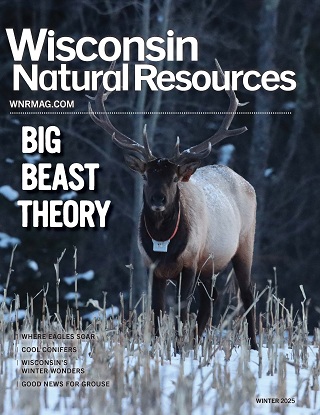Contact: Jenna Fastner, DNR Captive Wildlife Health Specialist
Jenna.Fastner@wisconsin.gov or 715-894-7181
Know What To Do If You Encounter Baby Wild Animals This Holiday Weekend
 If you encounter baby wild animals this summer, remember to keep wildlife wild. A baby animal’s best chance of survival is with its mother.
Photo credit: Robert Rolley
If you encounter baby wild animals this summer, remember to keep wildlife wild. A baby animal’s best chance of survival is with its mother.
Photo credit: Robert Rolley
MADISON, Wis. – As you head out to find your adventure this holiday weekend, the Wisconsin Department of Natural Resources (DNR) reminds you to help keep wildlife wild by staying a safe distance from young wild animals. It’s essential to observe wild animals at a respectful distance to keep them wild.
“During the summer, we receive many inquiries from concerned residents about the wildlife they are encountering while camping, hiking or even in their backyard,” said Jenna Fastner, DNR captive wildlife health specialist. “While touching a young wild animal does not cause the mom to reject it, human scent can give away its location to a predator and risk the animal’s health. In addition, contact with a wild animal can also put your health at risk. Always contact the DNR or a licensed wildlife rehabilitator for advice before intervening.”
Here are more reasons to Keep Wildlife Wild:
- Stress: Wild animals view people and domestic animals as predators and are highly stressed by the sights, sounds and smells of being near humans or domestic animals. This stress can cause serious health problems or death.
- Diet: Wild animals have specialized dietary needs that are not easily met. Without a specific diet, they are at high risk of severe nutritional deficiencies.
- Habituation: Wild animals must learn normal social behaviors from their own species. Wild animals that learn non-normal behaviors from humans or domestic animals will likely not survive if released.
- Disease: Wild animals carry many diseases and parasites, including some that can spread to domestic animals and humans.
- It’s Illegal: Most wild animals are protected under state and federal laws and cannot be taken from the wild or possessed by unauthorized citizens.
Knowing what to do before finding a young wild animal can make all the difference in protecting its health and keeping wildlife wild. The DNR has various resources to help determine when young wild animals need help and when it’s best to leave them in their natural environment. For tips on how to decide if a young wild animal is truly orphaned or in need of help, visit the DNR’s Keep Wildlife Wild webpage.
Helping Sick Or Injured Wild Animals
If you find a wild animal that appears sick or injured, leave it alone. Take pictures and make notes about what you’re observing. Then, call the DNR or a licensed wildlife rehabilitator for guidance. Visit the DNR website for a directory of rehabilitators in your area.

